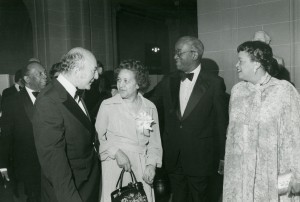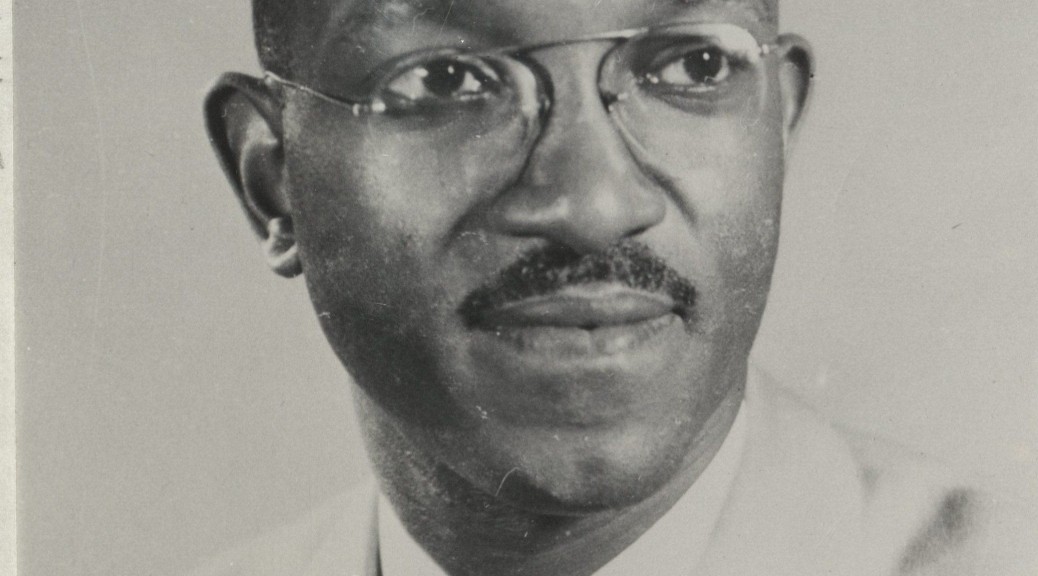Established in 1972, the Jefferson Lecture in the Humanities is the highest honor that the United States federal government confers on an individual for distinguished intellectual achievement in the humanities.
In 1976, The National Endowment for the Humanities invited John Hope Franklin to be the fifth Jefferson Lecturer in the Humanities. Franklin gave three lectures as part of the series; the first lecture was given in Washington, D.C., the second in Chicago, and the final lecture was in San Francisco.
Incidentally, Franklin received the invitation to give his lectures during the same year as the bicentennial of the Declaration of Independence. Franklin’s three lectures focused not only on Thomas Jefferson, but also on the topic of “Racial Equality in America.” The first lecture was titled “The Dream Deferred” and focused on the period from the revolution to 1820. The second lecture was titled “The Old Order Changeth Not” and explored the 19th century. The third lecture was titled “Equality Indivisible” and discussed events and issues of the 20th century.

In a scathing critique of Thomas Jefferson, Franklin highlighted the differences between perceptions and reality in some commonly held beliefs about race by using government texts and extensive data from the Census, property documents, as well as other sources.
Franklin’s lectures for the Jefferson lecture series were compiled and published in the book Racial Equality in America. The book was published by the University of Missouri Press in 1976.
This series is a part of Duke University’s John Hope Franklin@100: Scholar, Activist, Citizen year-long celebration of the life and legacy of Dr. John Hope Franklin
Submitted by Gloria Ayee, Franklin Research Center Intern


